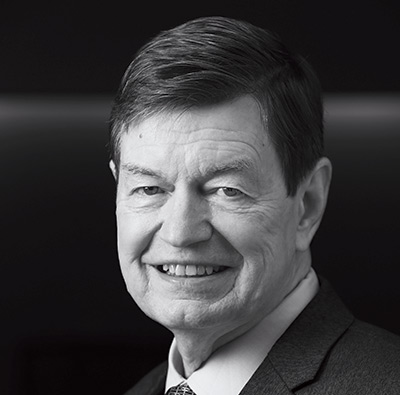
In the 21st century, “we are swamped by input and interconnected in unprecedented ways,” says Lyle Yorks, Professor of Adult & Continuing Education. Yet we also are “siloed” by everything from our professional expertise to the news sources we trust.
Yorks addresses that paradox — “perhaps the major learning challenge adults face” — through research; through workshops for corporate and institutional clients; and through “Strategic Advocacy,” his course in AEGIS (Adult Education Guided Intensive Study), the TC doctoral program he directs for mid-career professionals.

The expert mindset is critical, but you have to recognize how it hinders us from assessing trends, forming new insights and fostering needed conversations.”
— Lyle Yorks, Professor of Adult & Continuing Education
His message: How we filter information can cause us to over-simplify. “The expert mindset is critical but hinders us from assessing trends, forming new insights and fostering needed conversations.”
Culture, too — societal or professional — can blind us to alternative perspectives.
“Because people do not have a culture but inhabit one, they are never free agents capable of transcending their situation,” Yorks writes in his paper “Cross-Cultural Dimensions of Team Learning.”
Yorks asks his TC students to weigh conflicting advice in their own jobs and apply strategic tools and practices to learn from uncertainty. He also challenges organizations to navigate complexity. In his 2013 book, Strategic IT: Best Practices for Managers and Executives, Yorks and coauthor Arthur M. Langer urge chief information officers to strategically deploy technology by building collaborative alliances organization-wide. In their award-winning paper, “The Role of Reflective Practices in Building Social Practices in Organizations,” Yorks and his former student Yoshie Tomozumi Nakamura (Ed.D. ’10) argue that forming these social networks requires employees to connect with colleagues with diverse backgrounds and viewpoints.
In their recent paper, “Do I Really Know You? Do You Really Know Me? Empathy Amid Diversity in Different Learning Contexts,” Yorks and Elizabeth Kasl argue that intellectual understanding from an “effortful, top-down process” can’t alone bridge such differences. The two champion building an empathic understanding of others through “presentational knowing” — sharing one’s perspective through storytelling and other expressive forms.
That’s an idea that even 20th century folks can appreciate.